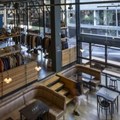#BizTrends2018: Winning brands will get their competitive edge from memorable customer experiences

GfK South Africa data reveals that 50% of South African consumers agree that experiences are more important than possessions, a number that will surely rise in the years to come.
Rather than wanting to spend money on expensive possessions, we are seeing consumers gravitate towards low-cost experiences such as visiting the beach, listening to music, playing video games, going to church or watching televised soccer with friends.Online shopping sets the trend
Online shopping is on the rise. Though we are a long way from the maturity of the US and Europe when it comes to e-commerce, it is a trend that will accelerate the trend of valuing experiences over possessions. When customers can flick from site to site looking for the best deal on a TV or a dress, they will spend less time shopping in physical stores.
Our data shows that people who shop in brick-and-mortar stores do so because they can physically see the product before they buy, they shop there routinely and they get instant gratification by getting the products much sooner. When they shop online, however, it’s for saving money, better selection and the overall ease of shopping.
However, consumers can still get excited going to the shops for an out-of-the-ordinary experience – just think about how South African queued to design their own ice-creams at the Magnum pop-up store in Rosebank, Johannesburg last year.
Experiential destinations
Mall operators are including more experiential elements in their design, putting entertainment-based locations like movie theatres and gyms at their heart. And physical shops are transforming into immersive showrooms and leisure destinations.
The point is no longer to close a sale, but to build a brand relationship.The objective is happy, satisfied shoppers that keep coming back. When they are ready to purchase, they will do so at the places that offer them more than a place to pay. Brands like global furniture retailer, Ikea, pioneered this approach with elaborate showrooms offering restaurants, childcare and more.
On the flipside, we are seeing digital brands also think about how they can engage with customers beyond competing on price and selection.
VR/AR blurs the lines
For some, it’s all about using cutting-edge technology like artificial intelligence or virtual reality (AR/VR) to deliver cool experiences and high degrees of personalisation.
Technologies such AR/VR will find a role in digital and physical stores alike. Some 59% of respondents to GfK South Africa research say they are more likely to visit a retail store that offered some sort of VR/AR experience.
As VR headsets become more affordable, they’ll most likely play a larger role in e-commerce, too. Consumers could walk around a virtual showroom to look at a car’s colours and interiors, for example. In future, the lines between virtual and physical experiences will all but disappear.
Digital stores on the high street
Just as we have seen physical stores move online, we’re seeing online shops like the UK’s Hotel Chocolate set up showrooms or high-street branches. Physical shops worldwide, meanwhile, allow shoppers to order online and collect in-store, or vice-versa.
To earn loyalty, retailers and brands need to delight shoppers, not just persuade them to buy. A better environment and experience will keep shoppers coming back.
















